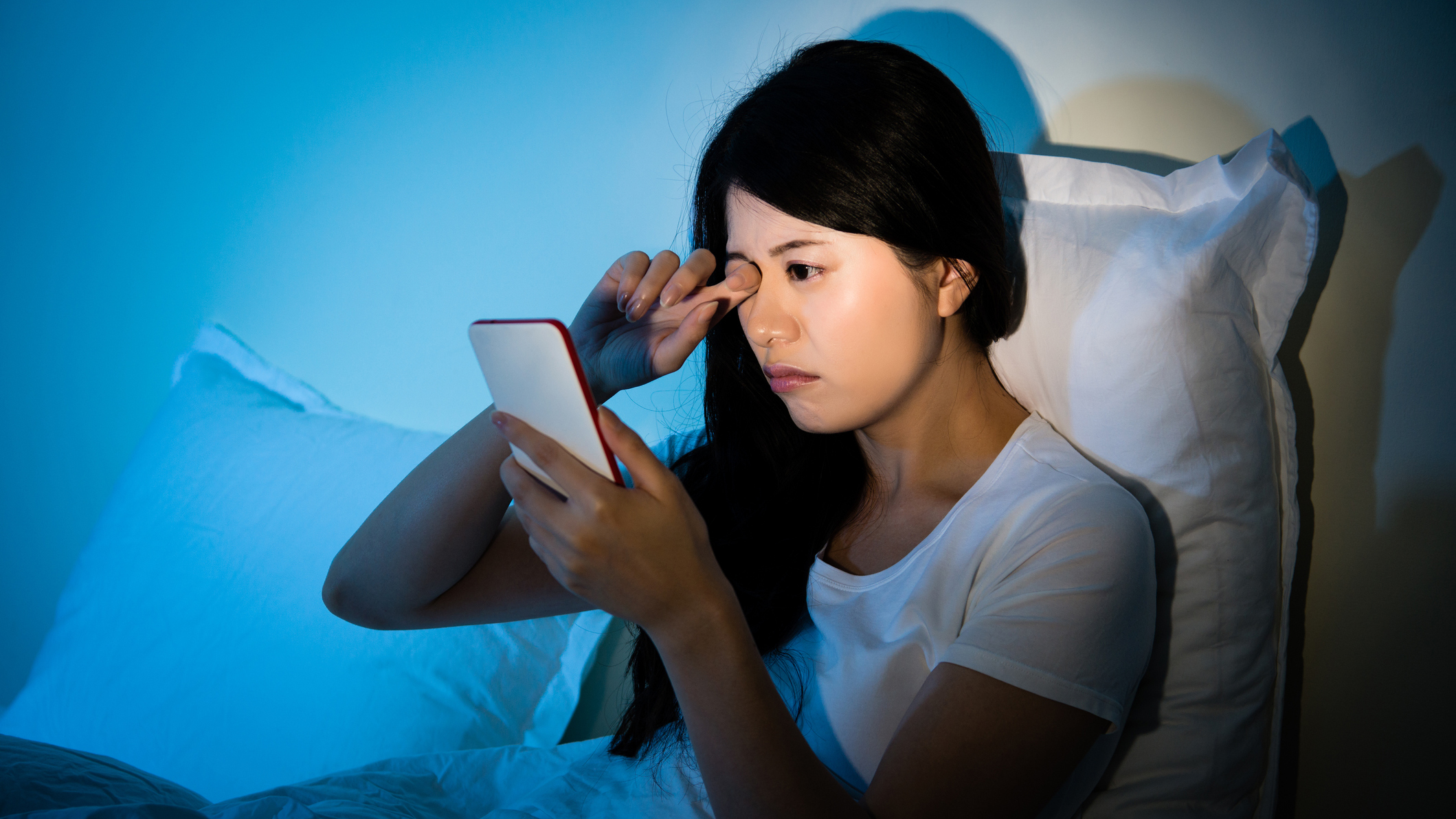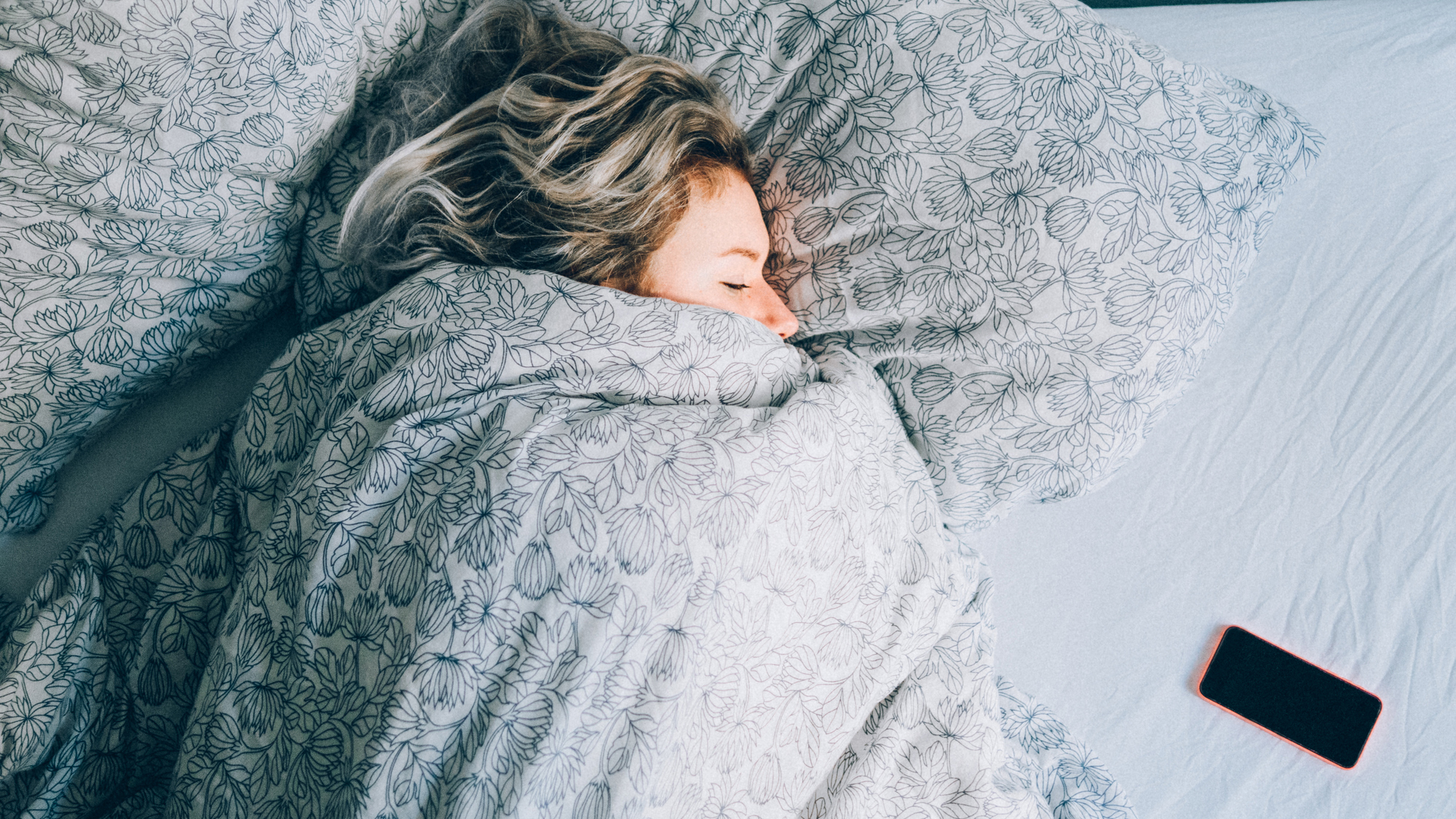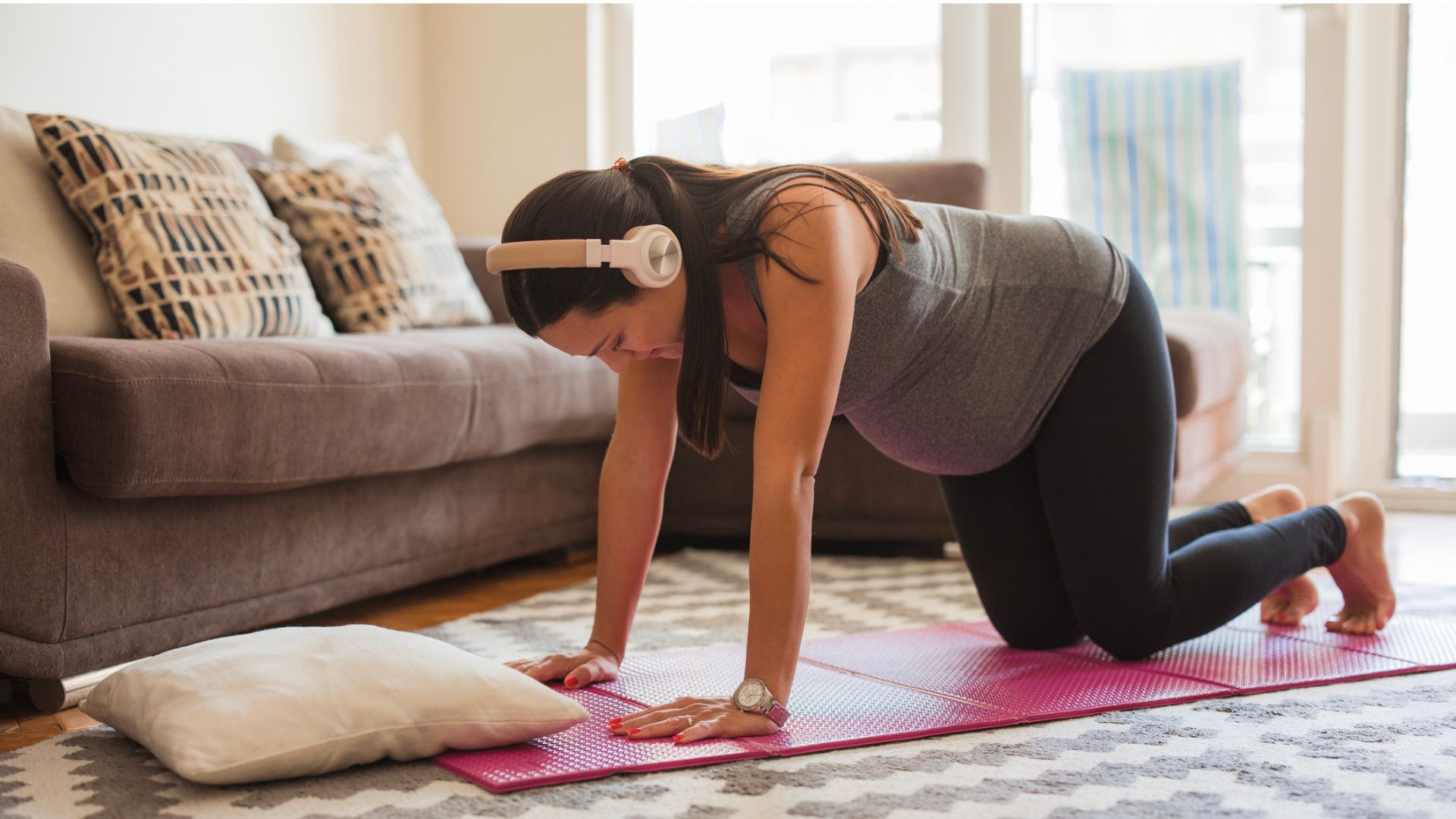Using your phone before bed can make you gain weight, says new research
Why exposure to blue light in bed might be doing more than hampering your sleep – it could be contributing to weight gain


We have devices everywhere now. If you work in an office, you use a computer. At home, you might use a tablet, often with a streaming service on your TV in the background. And of course, everywhere you go, your phone is in your pocket, always ready with ravenous time-consuming social media apps.
While the best fitness apps and best fitness trackers can be really beneficial for logging your workouts, recording your calorie expenditure and tracking your sleep, be careful about how much device time you log as you approach bedtime. Social media apps are designed like casinos, an intricate maze of attention-grabbing content fed to you to keep you scrolling.
Many social media apps artificially trigger dopamine – a chemical produced by our brain that rewards certain behaviours – with notifications, which is what drives addictive behaviour. It's why we keep scrolling well into the night. Social media comes with its own mental health dangers – California State University found study participants that visited any social media site at least 58 times per week were three times more likely to feel socially isolated and depressed than those who visited them just nine times a week.
However, it's not the mental health dangers we'll focus on today – it's the physical harm using devices during the night can do to your body. Specifically, using screen-based devices before bed exposes you to lots of "blue light" wavelengths. We've known for a while blue light interferes with your sleep, messing up your deep sleep cycles. However, for the first time, research has found blue light can alter the way your body expends energy.

The study, published by the University of Tsukuba in Japan, found extended exposure to LEDs which emit a large amount of blue light resulted in much lower energy expenditure, core body temperature and fat oxidation during sleep. Essentially, our bodies don't burn as much energy and don't break down fat cells as efficiently, potentially causing weight gain.
Senior author of the study Professor Kumpei Tokuyuma said: "Light exposure at night is related to fat oxidation and body temperature during sleep. Our findings suggest that specific types of light exposure may influence weight gain, along with other physiological changes."
Always turn your phone off an hour before bed, or even two hours if possible, and occupy yourself by reading a book or doing some light stretching before hitting the hay instead. If you use your phone as an alarm clock, it might be time to invest in a proper one.
Get the Fit&Well Newsletter
Start your week with achievable workout ideas, health tips and wellbeing advice in your inbox.
A sunrise alarm clock, for example, can wake you more gently while accurately simulating beneficial sunlight at the appropriate time to wake you up. Our list of the best sunrise alarm clocks is a great place to start.
Matt Evans is an experienced health and fitness journalist and is currently Fitness and Wellbeing Editor at TechRadar, covering all things exercise and nutrition on Fit&Well's tech-focused sister site. Matt originally discovered exercise through martial arts: he holds a black belt in Karate and remains a keen runner, gym-goer, and infrequent yogi. His top fitness tip? Stretch.

